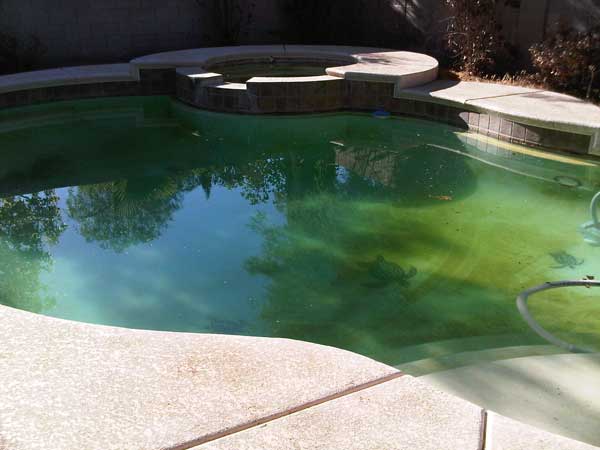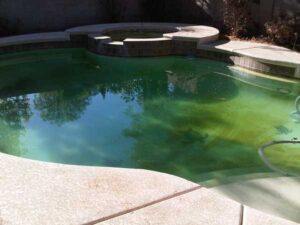Getting rid of pool algae, Advanced Pools contractors explain how
Even with consistent and ongoing swimming pool maintenance you may walk out some day and notice that your swimming pool has taken on a green or blue tinge — that is the beginning stages of algae bloom. In some cases, if you’re on vacation and your pool isn’t being cleaned and maintained properly, algae can take hold simply because the water isn’t being properly circulated and heat and still water can lead to bloom. The swimming pool contractors from Advanced Pools in Memphis, Tennessee explain that chlorine and pH levels need to be continually checked and maintained to keep your pool at a level of care that is is an unwelcome environment for algae.
Unfortunately, there are times when no matter how diligently you care for your pool water, algae takes hold and it can take over your swimming pool rapidly. Many pool owners who take on the care and maintenance of their pool on a regular basis find that ridding the pool of algae is one of those tasks that is beyond their do it yourself capabilities and they will call on a pool contractor for help getting rid of pool algae.
Tips for getting rid of pool algae
- An algae-infested pool can damage the pool. It also makes the pool unusable. Algae means pool water quality is suffering and could contain dangerous microorganisms. We recommend not swimming until the water is clear again.
- The best way to prevent algae is to keep pool chemicals balanced. Make certain the filters and pumps are fully functioning. Your pool contractor may recommend treating the pool water with an algaecide as an additional preventive measure.
- If algae takes hold it can be a daunting task to rid it of algae and it could also be rather expensive. The first step is to thoroughly scoop out as much algae as possible. The pool will need to be treated with algaecide. It will also need to be super-chlorinated aka shocked – to thoroughly kill spores. Many pool owners find treating an algae-filled pool is beyond their do it yourself capabilities and call on the services of a pool maintenance professional.
Improperly balanced pool chemicals or pool water neglect lead to algae growth. However, there are cases when even a properly maintained and treated pool can fall victim to algae and its spores. Fiberglass swimming pool owners find that algae is less of a problem simply because the pool walls and floors are so smooth it is hard for algae to take hold. Cement aka gunite pools offer crevices that are ideal for algae spores to take hold and grow.
Give us a call as soon as you notice a green or blue tinge to the pool water. We can work with you to get the pool back to being swim-worthy.



